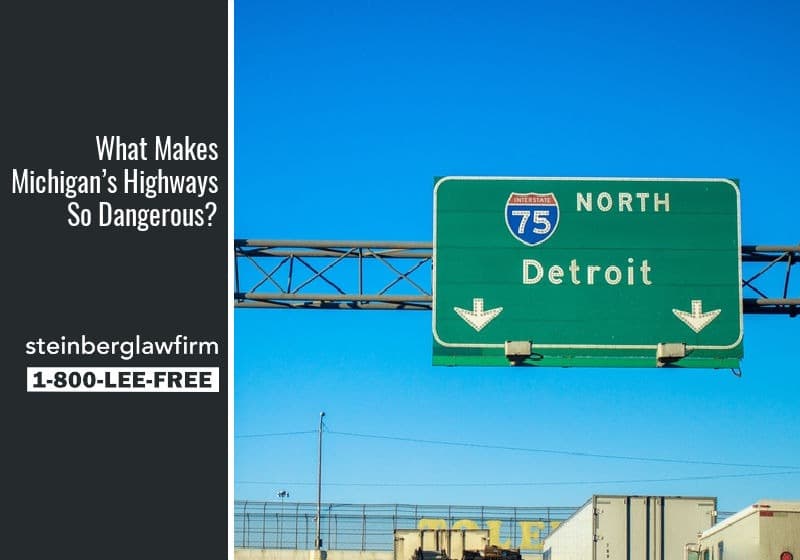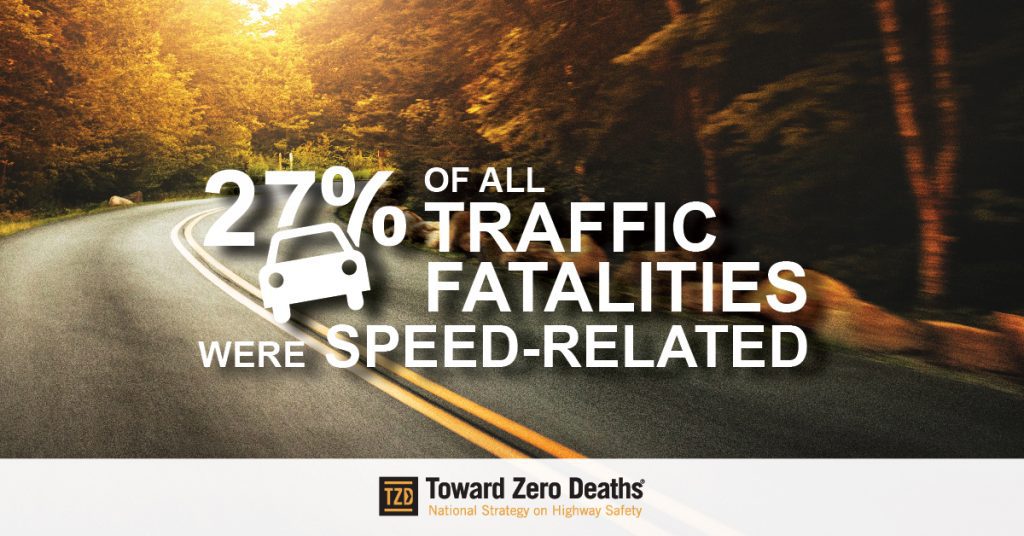
Key Points of This Article:
- According to the National Highway Traffic Safety Administration, three Michigan highway systems are the most dangerous, including I-94, I-75, and I-96.
- According to Michigan Traffic Crash Facts, nearly 40% of all fatal Michigan car crashes occur on Michigan highways and interstates.
- Michigan State Police and the Michigan Department of Transportation identified I-94 between Hartford and Kalamazoo as one of the most dangerous highway stretches in Michigan.
- In this review, speed leads to increased fatality factors at 27%, but distractions and alcohol also correlate with increased highway traffic fatalities nationwide.
Meet Michigan’s Three Most Dangerous Highways
With more than 37,000 fatalities occurring on U.S. highways each year, highway safety remains one of the most challenging issues facing Michigan and the nation. And while driving risks can vary widely by region and change with the seasons, the deadliest highways seem to hold their rank year-round. The warmer months serve as more dangerous as more vehicles are on the road, including young and inexperienced drivers. According to data from the National Highway Traffic Safety Administration’s (NHTSA) Fatality Analysis Reporting System (FARS), these three Michigan highway systems are the most dangerous.
Total crashes for the year 2019:
#1. M-94/I-94 (I-94BL/I-94BR): Total crashes: 11,824
#2. M-75/I-75 (I-75BL/I-75BS): Total crashes: 9,675
#3. M-96/I-96 (I-96BS): Total crashes: 9,351
Speed remains the single most significant factor in Michigan highway crashes. And, excessive speed is a factor in nearly 20% of all fatalities in motor vehicle crashes and 16% of suspected serious injuries. Distractions, alcohol, and drugs also correlate with increased highway traffic fatalities nationwide.
Michigan State Police say these local freeways, especially in the Greater Detroit areas, are most risky for wrecks caused by speeding drivers.
- I-96 (Westside, between Beck and Wixom Road and the Southfield Freeway)
- I-75 (North of Pontiac)
- I-75 (Between M-59 and Sashabaw Roads)
In 2019, nearly 985 people in Michigan were killed in motor vehicle traffic crashes, and another 74,963 were injured. You can help eliminate serious injuries and deaths on Michigan roadways by merely lowering your speed and making smart driver choices.
Speed Remains a Top Factor in Highway-Related Crashes

Michiganders who speed, drive while intoxicated or distracted are the heaviest contributors to nearly half of the state’s highway-related fatalities. They drive too fast on the highway and are also most impacted by these four factors identified by the Department of Transportation.
- Traffic: Traffic congestion is one of the most frequently mentioned contributing factors to aggressive driving, such as speeding. Drivers may respond by using aggressive driving behaviors, including speeding, changing lanes frequently, or becoming angry at anyone they believe impedes their progress.
- Running Late: Some people speed or drive aggressively because they have too much to do and are “running late” for work, school, their next meeting, lesson, soccer game, or another appointment.
- Anonymity: A motor vehicle insulates the driver from the world. Shielded from the outside environment, a driver can develop a sense of detachment, as if an observer of their surroundings, rather than a participant. This can lead to people feeling less constrained in their behavior when others can’t see them or when it is unlikely that they will ever again see those who witness their behavior.
- Driving While Under the Influence: Motorists should never put others at risk by driving after using drugs or alcohol. Drugs or alcohol use while driving and speeding are deadly combinations because drivers may feel invincible and choose dangerous and risky driving behaviors. Never operate a motor vehicle if impaired.
These occurrences are known to create an overall rise in speeding and speed-related aggressive driving crashes on highways.
Drivers who speed on highways, are distracted or under the influence, also create situations where they have:
- greater potential for loss of vehicle control;
- reduced effectiveness of occupant protection equipment;
- increased stopping distance after the driver perceives a danger;
- increased degree of crash severity leading to more severe injuries;
- economic implications of a speed-related crash; and
- increased fuel consumption/cost.
These drivers are also likely to practice other bad driving habits that put other motorists at risk of severe and disabling injuries, including:
- traumatic brain injury
- broken bones
- spinal cord injuries and paralysis
- facial injuries and fractures
- soft tissue injuries which require plastic surgery
- shoulder injuries
- chest injuries and traumatic cardiac arrest
- back and neck injuries, including whiplash
- burns
- herniated disk
- shoulder, knee, and joint injuries
- internal organ injuries
- crush injuries
- pain and suffering, emotional distress, and post-traumatic stress disorder
Crash-related injuries are also costly — and medical care and productivity losses associated with injuries and deaths from motor vehicle crashes exceed $75 billion each year nationwide. In Michigan, the total cost of traffic crash deaths in 2018 was $1.36 billion, according to the CDC’s Web-based Injury Statistics Query and Reporting System.
Michigan Car Accident Attorneys – You Pay Nothing Until We Settle
If you or someone you know has been injured in a highway crash or any other kind of motor vehicle accident in Michigan, know that the Lee Steinberg Law Firm, P.C. can be right there to help. Regardless of the cause of any traffic accident, victims of motor vehicle wrecks are entitled to benefits under the Michigan No-Fault Law. These benefits cover reasonably necessary medical expenses related to the accident, lost wages, replacement services (to cover household chores or childcare the victim can no longer complete), attendant care such as in-home nursing, medical mileage, out-of-pocket medical costs, and vehicle and/or home modifications.
Please give us a call today and speak to our car accident attorneys at 1-800-LEE-FREE (1-800-533-3733) so we can start helping you and hold those responsible for your injuries or loss accountable. And remember, you pay nothing until we settle your car accident case.
Also read: Wayne & Kent Counties Earn Top Rankings for Speed-Related Crashes in Michigan
